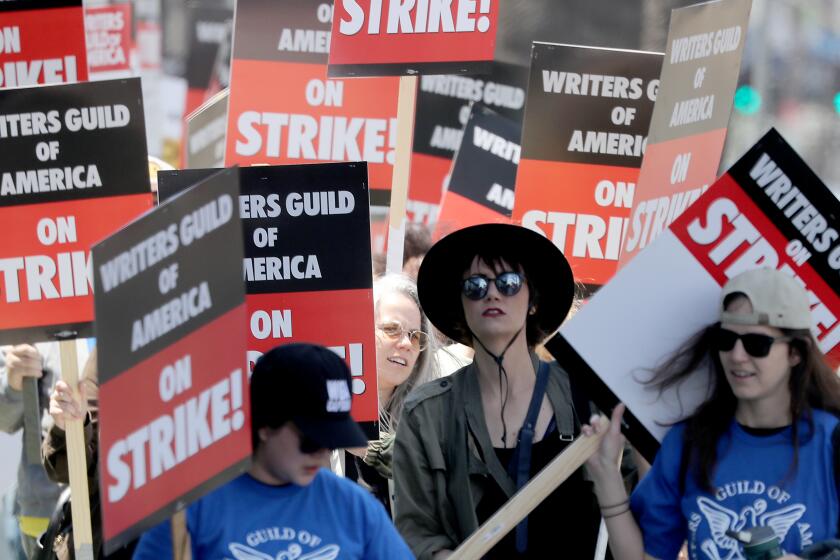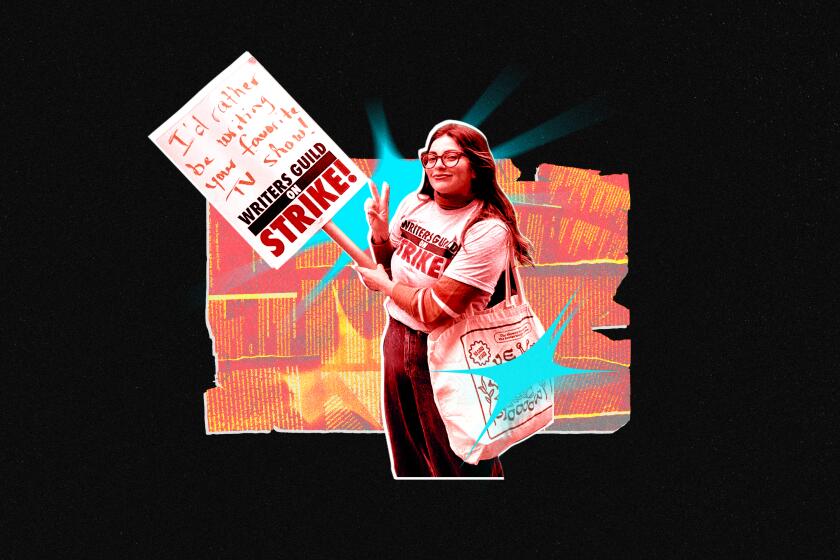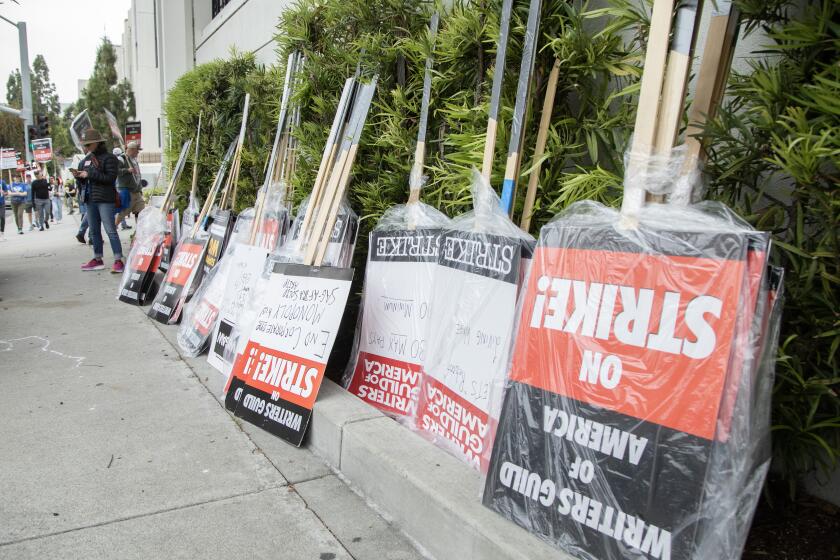Shea Serrano: What it’s like to have your TV show come out during the writers’ strike
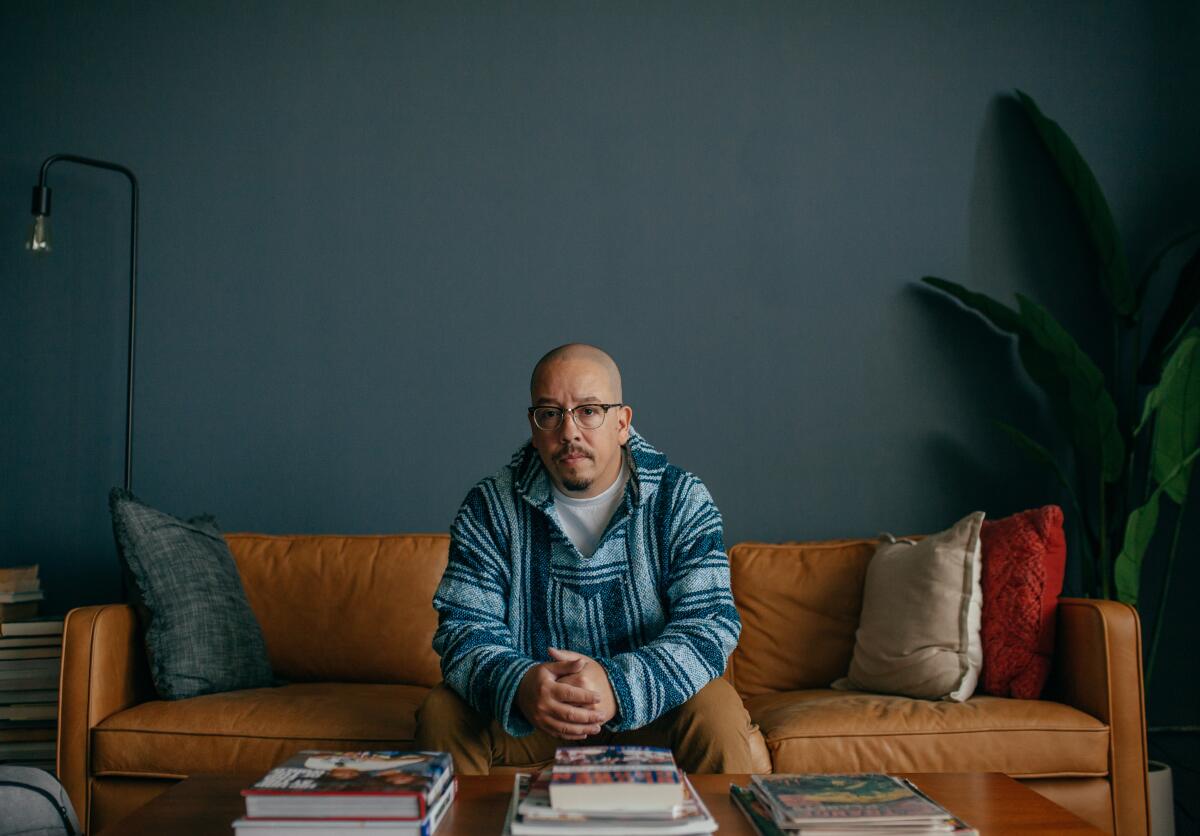
“We’re going to put you through showrunner training camp.”
That’s what David Miner said to me after we found out that a TV show we’d been developing for some time had officially received a season order.
David is a very talented manager and television producer. I met him the same way pretty much everything in my short career in Hollywood thus far has come to me — via a co-sign from Mike Schur.
Mike has worked on and created some of the best comedies that have ever been on television. The tightest of summaries: He was a writer and producer on “Saturday Night Live.” He was a writer and producer on “The Office.” He co-created “Parks and Recreation.” He co-created “Brooklyn Nine-Nine.” And he created “The Good Place.” That’s, of course, not everything he’s done during his 25 or so years working in television, but it’s enough for you to understand the point I’m trying to make here, which is: His work is of the highest possible pedigree, and his professional gravity is of the highest possible pull. He is, in my estimation, the greatest TV comedy showrunner of this century. He is also, if you can even believe this, an executive producer on “Primo,” which is a TV show I created that will air its first season — all eight episodes — on Amazon Freevee on May 19.
In an effort to increase the pressure on studios to come to an agreement with the Writers Guild of America, some showrunners have chosen to stop publicity work for their series.
I am extremely proud of “Primo.” I love it a great, great deal. I don’t mind telling you: I think it is smart and warm and unexpected and funny and Funny and FUNNY. I also don’t mind telling you: Very little of it had anything to do with me. The quality of the show is owed to the cast, and to the producers, and to the production crew, and to the postproduction crew, and to the directors, and to the writers and everyone else who lent their insight and talent to it. And all of those pieces were put in place and overseen by Mike and his team. (In addition to David, there’s also the very talented Morgan Sackett, another executive producer on the show, who specializes in all of the behind-the-scenes stuff that needs to happen for a TV show to exist, like budgeting and scheduling and personnel).
From the day we began developing “Primo,” Mike took on the role of mentor. He was always there, during every phase, from the very first part — a character document I wrote that roughly outlined who each of the characters on “Primo” were before we’d even pitched the show — to the very last part — the final color corrections for the season finale roughly two years later.
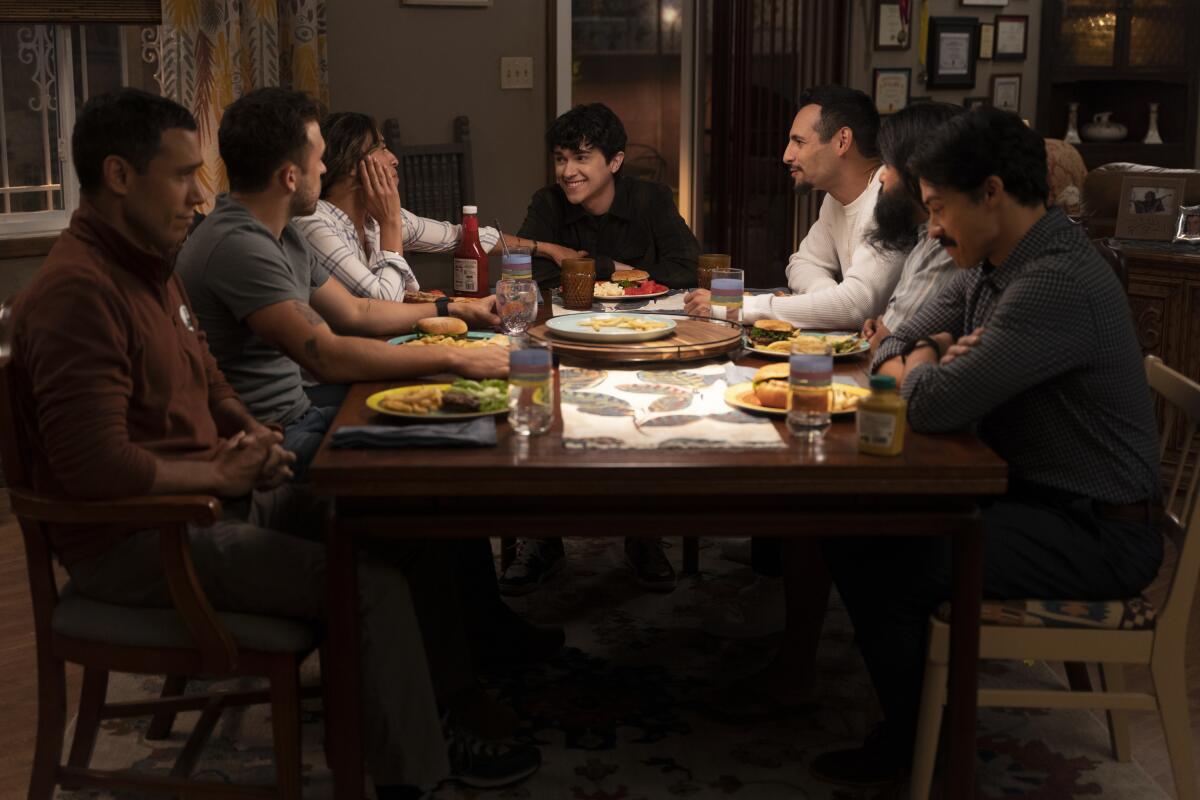
Mike, David and Morgan were always on the Zooms, and at the in-person meetings, and on the text message exchanges, email chains and phone calls. The four of us interviewed writers together; we talked to directors together; we watched auditions together; we hired the production crew together. There was never a moment where it felt like I didn’t have someone I could steady myself up against whenever my legs would get wobbly underneath me, which, let me tell you, was all the f— time.
Here’s how you write a season of television. Here’s how you set and manage the budget of a show. Here’s how you talk to the studio and network. Here’s how you choose the right actors for the roles. Here’s how you design and dress a set. Here’s how you set the tone for the show. Here’s how you edit the stuff once you’ve shot it. Here’s how you do the sound mixing.
On and on and on, over and over and over, more and more and more, the advice and assistance and tutelage went. It was, as David described it, showrunner training camp: mentorship and guidance and lessons at every step. (This also feels like a good spot to mention Lisa Muse Bryant and Peter Murrieta, both of whom are also executive producers on “Primo” and who spent the entire summer of 2022 with me shooting in New Mexico. Over the course of those three months together in the desert, Lisa and Peter, same as Mike and Morgan and David, effectively became big sister and big brother; always there when I needed them, always making sure I didn’t accidentally explode my own legs off.)
The 2023 writers’ strike is over after the Writers Guild of America and the Alliance of Motion Picture and Television Producers reached a deal.
The whole thing, from top to bottom, front to back, beginning of the season to the end, was a fulfilling and positive experience.
A couple of weeks after it was all done, I sat in my office one day and rewatched all of the episodes, alone, in the dark and with zero interruptions. I turned my phone off and muted all of the alerts on my computer. It was just me and the show.
I logged into the screening site, dialed up the pilot, watched it and then watched the remaining seven episodes without stopping. It was an emotional, overwhelming afternoon. I couldn’t believe what I was seeing. After all those months of writing, and all those months of shooting, and all those months of postproduction, there it was — our show — a couple of years of work in front of me, and it was so much better than I could’ve possibly imagined. And now it’s finally gonna come out and everyone else is gonna get to see it too.
There are a number of issues combining to limit the hiring and advancement of Latinx writers in Hollywood.
A question I’ve been asked a couple of times these past weeks is: “What’s it like to have a TV show coming out during a strike?” It would seem like a complicated question to answer, but it’s not. It’s pretty easy, actually.
I’m bummed that the strike had to happen, but also I’m proud that the strike is happening. And what I mean is: Writers are wildly important. Every movie or TV show you’ve ever loved started out as something that someone wrote. It was words on a page. Without writers, you don’t have that — it’s impossible. And so it sucks that writers today — and for years now — have been made to feel less and less important; to feel as though their work is seen as less and less vital by the studios and executives in charge. Hopefully, though, those in charge will see that the Writers Guild of America, the union representing TV and film writers, is only asking for very fair, very reasonable things — accommodations to make it so that writing as a career can be exactly that: a viable career path.
Streaming has transformed television and led to a surge in content, but it also has squeezed Hollywood writers. Five Writers Guild of America members share their stories.
After we finished working on Season 1 of “Primo,” I asked Mike why it was so important to him that he be such a legitimate and meaningful mentor to me when we were making the show. “Like, why do it that way?” I asked. “You essentially assigned yourself a tremendous amount of work.” His response:
“Because that’s how this works. The people who know stuff tell the people who are just starting out what they know so that those people know stuff and can keep this art form going. That’s, to me, part of the job. Without that, it all ends. Writing goes away. Greg Daniels [the producer and writer] did it for me and I do it for you and someday you’ll do it for someone else. It’s a huge part of what we’re fighting for, the ability for this thing we love to be passed on.”
Hopefully the strike ends soon.
Hopefully we get a Season 2.
Hopefully everything works out.
Hopefully more people get to do showrunner training camp soon.
Shea Serrano writes things for a living. He worked for six years at sports and pop culture website the Ringer, has written four New York Times bestsellers and is the creator of “Primo.”

